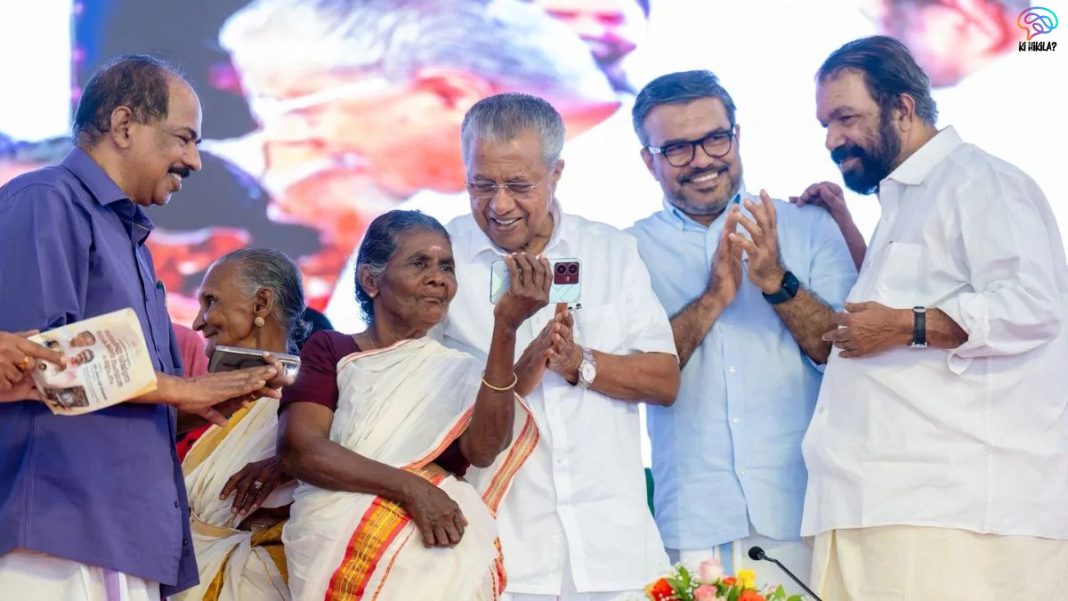Kerala First Fully Digitally Literate State – this historic achievement was announced recently, marking a landmark in India’s digital transformation. With this, Kerala has become the first state in the country to bridge the digital divide comprehensively through the ambitious Digi Kerala project. The initiative empowered millions with basic digital skills, ensuring no demographic group was left behind.
Digi Kerala Project and Training Coverage
The Digi Kerala project began with extensive surveys across the state. Over 1.5 crore people from 83.46 lakh families were surveyed, identifying 21.88 lakh digitally illiterate individuals. The program then rolled out structured training sessions, and nearly all—21.87 lakh or 99.98%—completed the program successfully.
This achievement was possible due to Kerala’s strong grassroots governance and local body participation. Unlike top-down projects, training was decentralized, with active involvement from panchayats and municipalities. This ensured maximum accessibility and inclusivity.
Inclusivity and Accessibility for All
A unique highlight of the program was its inclusivity. Participants ranged from young students to senior citizens. One inspiring case was 104-year-old M.A. Abdullah Moulavi Baqavi from Ernakulam, who successfully completed the training. Such examples underline the program’s accessibility and community spirit.

Local governance structures played a crucial role in mobilizing resources and motivating people. By tailoring training modules to different age groups and education levels, Kerala ensured that the digital divide narrowed across all sections of society.
Bridging the Digital Divide in Kerala First Fully Digitally Literate State
Becoming the Kerala First Fully Digitally Literate State has wide-reaching implications. Citizens can now access government services like Ayushman Bharat, PM-Kisan, Jan Dhan, and state welfare schemes digitally. This reduces reliance on middlemen and promotes financial inclusion.
Importantly, marginalized groups, women, and rural households can now use digital platforms for education, banking, and welfare benefits. This milestone has not just improved service delivery but has also strengthened equity in society.
Strengthening Digital Democracy in Kerala First Fully Digitally Literate State
Digital literacy has enhanced civic participation in Kerala. Citizens are now able to:
- File grievances online.
- Submit Right to Information (RTI) applications digitally.
- Participate in e-governance platforms.
This has created a transparent and accountable governance system where people are active stakeholders. The ability to hold authorities accountable digitally is a major leap toward strengthening democracy at the grassroots level.
Kerala’s Model and Digital India Mission
The Kerala First Fully Digitally Literate State initiative offers a replicable model for the rest of India. Unlike projects that focus only on infrastructure development, Digi Kerala emphasized grassroots capacity-building.
By training people rather than just providing technology, Kerala ensured citizens not only had access to devices but also the skills to use them effectively. This aligns seamlessly with the Digital India mission, which aims to empower every citizen through technology-driven governance.
Socio-Economic Empowerment Through Digital Skills
Digital literacy is not only about accessing government services but also about economic empowerment. With new skills:
- Small businesses and entrepreneurs can use digital tools for e-commerce and marketing.
- Self-help groups are using platforms for financial management and collaboration.
- Rural communities are tapping into online learning and livelihood resources.
This reduces exclusion and provides opportunities for sustainable economic growth.
Building Resilience in Governance
Another critical benefit of digital literacy is resilience in times of crises. During pandemics and natural disasters, digitally literate citizens can continue accessing services, health advisories, and education online.

From e-learning platforms to telemedicine services, Kerala’s population is now better prepared to respond effectively to emergencies. This strengthens the state’s governance capacity and ensures uninterrupted public service delivery.
Future Outlook
Kerala’s achievement as the first fully digitally literate state in India is a milestone not only for the state but also for the nation. It signals a paradigm shift in governance, where digital tools are not limited to urban elites but are accessible to every citizen.
As India marches toward becoming a global digital leader, Kerala’s grassroots-driven approach offers a blueprint for inclusive digital transformation. Other states can replicate this model to ensure the benefits of the Digital India mission reach every corner of the country.




